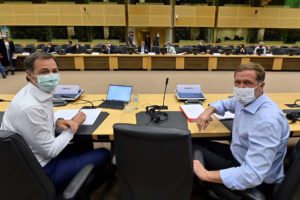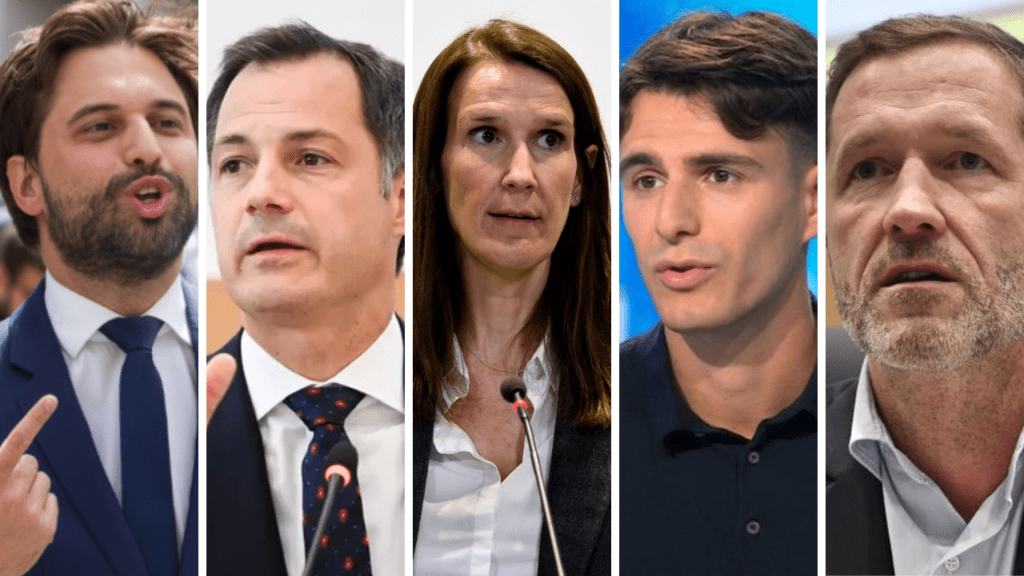To many – even those living within the country – Belgian politics may seem like an impenetrable topic, but with momentum building towards an eventual conclusion, it's time to explain.
As of now, it has been almost 500 days since the last elections, on 27 May 2019, split Belgium in two as Flanders voted overwhelmingly to the right while Wallonia voted mainly left; and over 600 days since the previous government, led by Charles Michel of the Francophone liberal MR party, fell in December 2018 after the Flemish rightwing N-VA left the government following Michel's decision to support the UN Migration Pact.
What happened since then?
For about a year, the country was led by a government of current affairs, meaning it was limited to taking purely administrative decisions and only settling urgent or routine matters. When Michel was elected to become President of the European Council, party member Sophie Wilmès took over his role as Prime Minister in October 2019, essentially forming a new government.
When the coronavirus crisis broke out in Belgium in March 2020, the government negotiations were temporarily halted, and the Wilmès government received special powers for a period of three months to deal with the crisis.
These powers allowed Wilmès’ minority coalition it to introduce new legislation, but only relating to the coronavirus, to guide the country through the emergency of the pandemic. However, as the crisis was far from over by June, the special powers were extended for another three months, initially set to expire on 17 September, when a fully functioning government was supposed to be installed.
What is happening now?

Preformators Conner Rousseau (left) and Egbert Lachaert. Credit: Belga
After several failed attempts at forming different coalitions, party leader of the Flemish liberals (Open VLD) Egbert Lachaert was the twelfth person appointed by the King to find a solution for the federal government puzzle.
These royal appointees are called informators, preformators or formators, depending on what stage the negotiations are in. First, informators are the ones who start explorative talks with possible coalition partners. Usually, negotiations for a draft coalition agreement are then discussed with the pre-formators, before they hand the job to a formator, who sees the agreement through to the end.
At the end of August, Lachaert officially informed the King that he was going for a so-called Vivaldi coalition.
Such a coalition, which currently sees seven party leaders working on an agreement, received its name because its four components are thought to represent the composer’s Four Seasons: red for socialists PS and sp.a; blue for liberals MR and Open VLD; green for ecologists Ecolo and Groen; and orange for Christian democrats CD&V.
This government composition, however, excludes the Flemish rightwing N-VA, the party that received the most votes in the 2019 elections, because of tensions with other parties. Both N-VA and the far-right Vlaams Belang party, which came out as the biggest winner of the 2019 elections, have repeatedly denounced the absence of a Flemish majority in the Vivaldi coalition.
Related News
- Belgium wants a federal government by 1 October
- The drama of Belgian politics: too many principles, too little responsibility
- Wilmès stays in power, for now
Even though new developments were rapidly following each other, the parties agreed on 10 September to extend its initial 17 September deadline to 1 October, after some unforeseen delays as Lachaert, who was one of the two party leaders in charge of leading negotiations, tested positive for the coronavirus.
After a brief interruption on 21 September, in which it seemed like the Vivaldi coalition would fail after all, following statements from the leader of the Flemish socialists (sp.a) Conner Rousseau that he no longer wanted to take part in negotiations with the Walloon liberals (MR), as its president Georges-Louis Bouchez had not kept his word.
Instead of delivering a progress report to the King, preformators Lachaert and Rousseau offered their resignation, which the King, in turn, refused, urging them to rebuild trust for the good of the country.
Two days later, on Wednesday 23 September, they managed to resume the talks after offering Bouchez a last-minute compromise, which he accepted.
The next day, the leader of the Francophone socialist party (PS) Paul Magnette and Deputy Prime Minister Alexander De Croo of the Flemish liberals (Open VLD) were appointed co-formators by the King on Wednesday in what is usually the last step before forming a full-fledged government.
This new position, which sees them replace the preformators, means that De Croo and Magnette are now responsible for leading all parties in the talks to form a full cabinet and finish the coalition agreement.
So, who will become Prime Minister?

Co-formators Alexander De Croo (left) and Paul Magnette during the negotiations on 24 September. Credit: Belga
Who will lead this government, if and when the coalition agreement is ready, is far from clear. After several Francophone Prime Ministers in a row, many Flemish politicians – including Maggie De Block – want to see a Prime Minister from Flanders head the next government, but nothing has been decided yet.
Several times now, MR's leader Bouchez proposed that Wilmès, the current Prime Minister and Bouchez' party colleague, could remain in charge of the coming government as well, even though it does not seem likely, according to several experts.
In the past, an unwritten rule has stated that the Prime Minister should come from the biggest party, which would be the PS' Paul Magnette in this case. However, the chance that the position will go to his Flemish co-formator De Croo is just as likely, motivated in part by an attempt to keep the balance in a government that will have a Francophone majority.
"Formators are formators, the rest of the casting has yet to be discussed," said Joachim Coens, leader of the Flemish Christian democrats (CD&V). "We are here to talk about the formation of a good coalition agreement that deals with the issues that keep people awake, such as health care and the increase in purchasing power.”
Despite several difficult decisions – such as the debate on easing the abortion law and the nuclear phaseout by 2025, but also a climate action plan – on the table, the negotiating parties are beginning to show trust in each other, according to the Greens' federal fraction leader, Kristof Calvo.
"We want to re-establish respect in politics. We have to work with this confidence to make choices," Calvo told VTM. "There must be a new government by 1 October. That is almost two years after the fall of the government. As far as we are concerned, failure is not an option."
Next steps

CD&V party leader Joachim Coens. Credit: Belga
On Monday 28 September, the two co-formators are expected back at the Palace to deliver a new progress report, and hopefully, make the 1 October deadline.
In a race against the clock, the parties must now finish the agreement and also start gathering their party congresses to give their final go-ahead. Normally, such a congress is no more than a formality, but it is still possible that a party can halt progress by not accepting the terms, which several CD&V party members are reportedly still considering.
Additionally, even if all party congresses approve the agreement, getting everything done in one week's time seems difficult, according to reports.
If it turns out the 1 October deadline cannot be met, another option is to extend it to the absolute limit on 15 October, when Belgium has to submit its draft budget plan to Europe. In that case, the powers of the Wilmès government could be extended again.
Another possible solution that has reportedly been mentioned in the meantime is that a coalition agreement could still be ready on 1 October, but without a budget plan. The budgetary framework could then be worked on for another two weeks until mid-October.
However, it is not certain that all parties want to step into a coalition agreement before all the details have been agreed on.
"The hunger of a number of non-government parties to have a government as soon as possible is great," one high-up CD&V party member told De Standaard. "Only now, we'd better make good arrangements. Discussing those details later will only create tensions in the long run."

